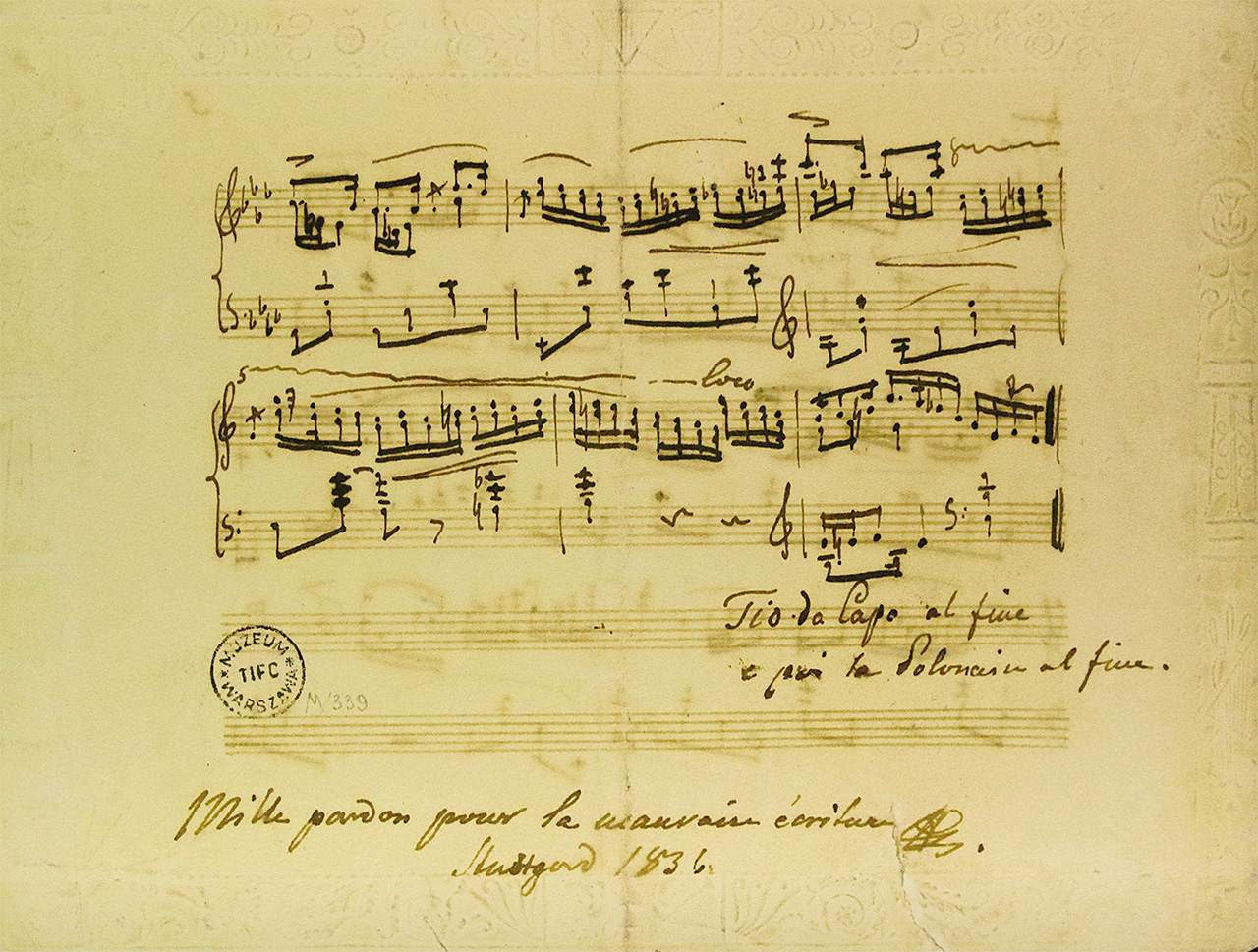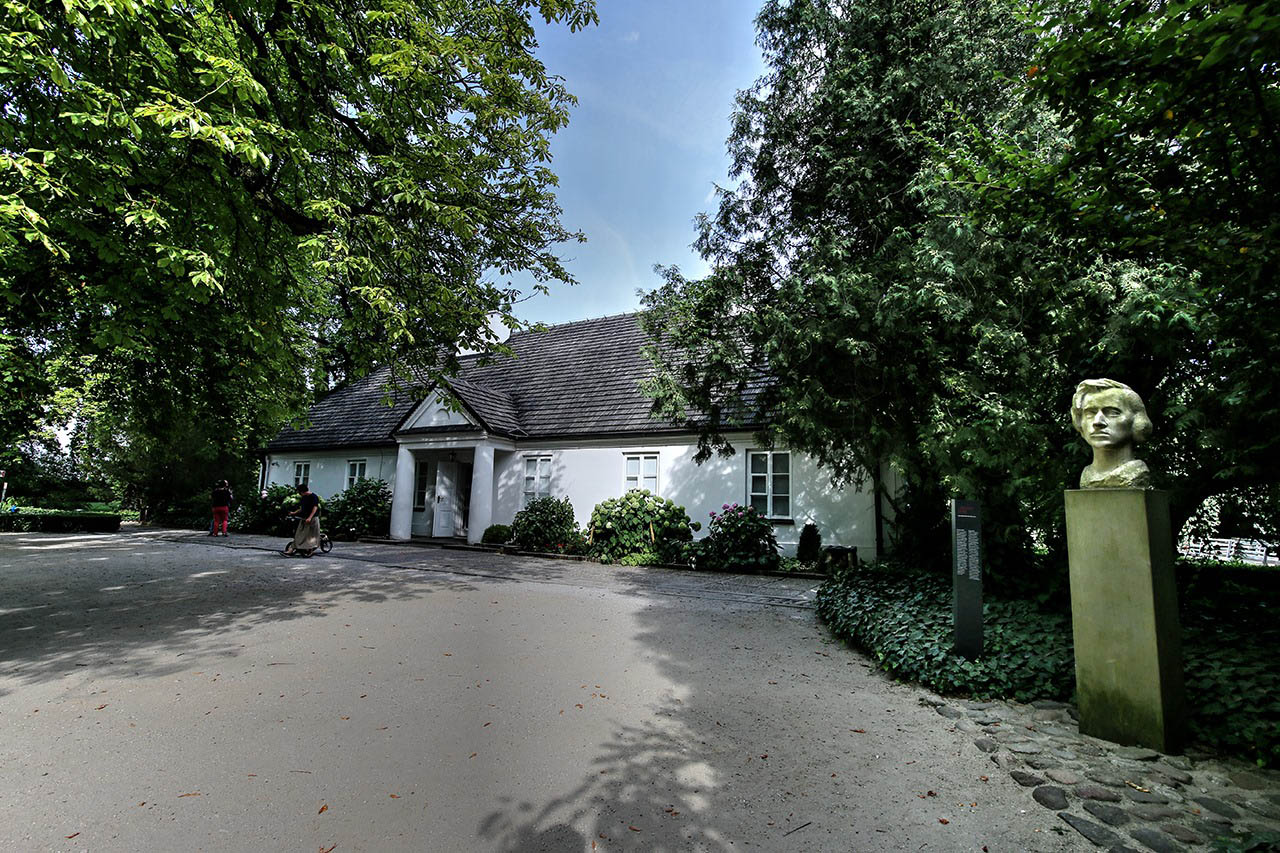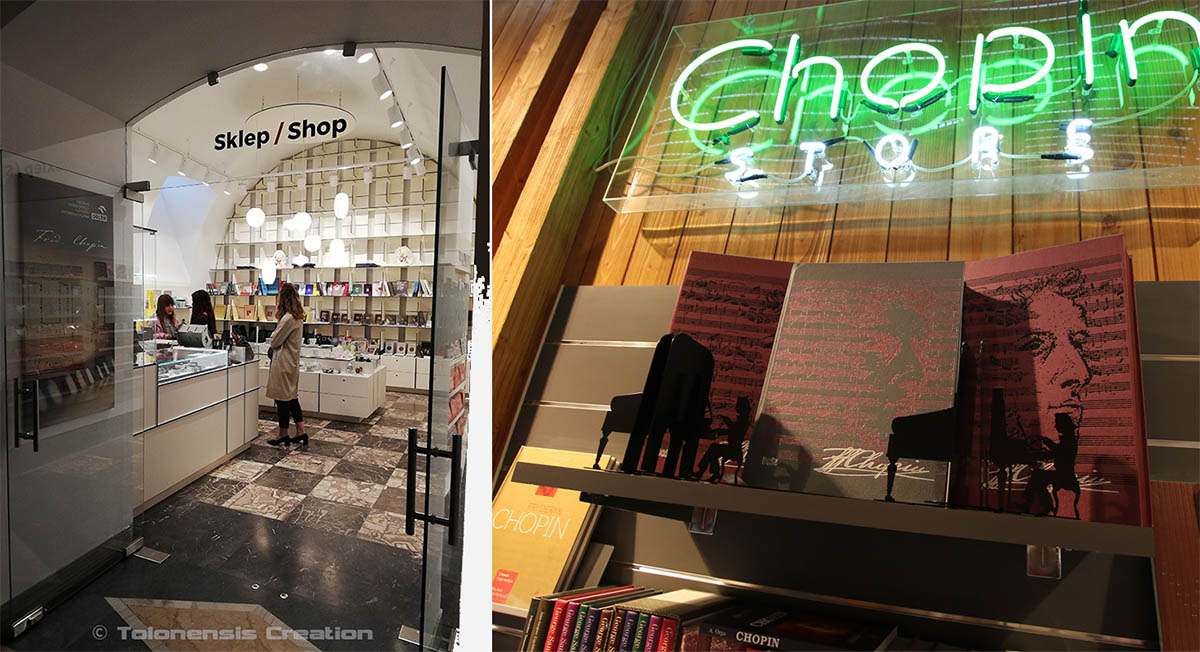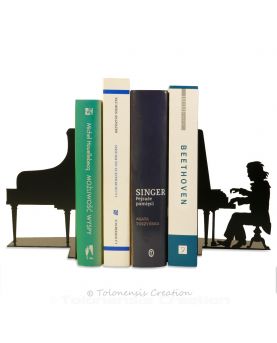Frédéric Chopin and his museum in Warsaw
Frédéric Chopin, born on March 1, 1810, in Żelazowa Wola, near Warsaw, was the second child of Nicolas Chopin, a French teacher, and Justyna Krzyżanowska, an accomplished pianist. His cultured and artistic family immersed him in music from a young age. By the age of six, he was receiving piano lessons from his mother, quickly demonstrating exceptional talent and a deep understanding of music. By eight, he was already composing his own works.
A French Musical Creative Life
At 16, Chopin left Poland for Vienna to continue his musical studies before settling in Paris, the musical capital of the time. His arrival coincided with a period of great artistic excitement in the city, where he quickly gained recognition for his innovative and expressive piano style. His musical creativity was nourished by the eclectic influences of the Parisian music scene, where he rubbed shoulders with the greatest composers, musicians, and writers of his time.
Chopin's life in Paris was a period of great artistic emulation. Arriving in a city in cultural bloom, he quickly integrated into the vibrant music scene of the era. Paris was home to a diversity of artistic currents, ranging from romanticism to avant-garde, and Chopin was deeply influenced by this creative atmosphere. He frequented the most prominent salons, where he befriended composers such as Liszt, Berlioz, and Mendelssohn, exchanging ideas and artistic experiences.

Autograph from Frédéric Chopin - Chopin museum in Warsaw
"A thousand pardons for bad handwriting - Stuttgart 1836".
The meeting with George Sand, a renowned writer and prominent figure in Parisian intellectual life, marked a significant turning point in Chopin's life. Their tumultuous relationship, which lasted nearly a decade, was both a source of inspiration and torment for the composer. George Sand was a complex, independent, and passionate figure, whose influence on Chopin was reflected in his music. Their moments of happiness and conflict enriched his artistic expression, adding emotional depth to his compositions.
Chopin's travels across Europe also enriched his life and music. He regularly performed in major European cities, receiving warm and enthusiastic receptions from the public. His concerts were highly anticipated events, where his virtuosic piano playing and moving interpretation captivated audiences. Moreover, his travels allowed him to discover new musical influences and nurture his creativity.
Despite his success, Chopin's health began to decline in his later years. Weakened by illness, he continued to compose until his final days. His premature death in 1849 plunged the musical world into mourning, but his legacy endures through his immortal works. Chopin leaves behind a musical corpus of timeless beauty, which continues to inspire and touch the hearts of music lovers worldwide, bearing witness to his musical genius and lasting impact on the history of music.
Frédéric Chopin is buried in Père Lachaise Cemetery in Paris.
Paderewski, one of the Greatest Interpreters of Chopin
Ignacy Jan Paderewski, born on November 6, 1860, in Poland and died on June 29, 1941, in Switzerland, was not only one of the greatest pianists and interpreters of his time but also a fervent advocate of the music of Frédéric Chopin. His virtuosity and deep sense of interpretation made him a prominent interpreter of Chopin's works, enabling him to capture all the subtlety and emotion of the music of the great Polish composer. Paderewski was renowned for his exceptional piano technique, but it was above all his ability to convey the soul and spirit of Chopin's music that distinguished him. His interpretations were imbued with a profound sensitivity and an intimate understanding of Chopin's musical language, captivating audiences worldwide. In addition to his brilliant career as a concert pianist, Paderewski was also a prolific composer and a committed statesman, earning him an important place in the history of music and politics of his time.
The Chopin Museums
Warsaw's Chopin Museum was inaugurated in 1953 in the former Ostrogski Palace. It houses a rich collection of artifacts relating to the composer's life and work, as well as interactive exhibitions and audiovisual installations enabling visitors to discover his musical universe.
The Chopin Museum in Żelazowa Wola is an iconic venue, as it is located in the birthplace of composer Frédéric Chopin, in the village of Żelazowa Wola, around 40 kilometers west of Warsaw on the edge of the Kampinos National Park. The house itself is a charming dwelling typical of the architecture of the old manor houses of the Mazovia region. The house is set in the middle of a magnificent park, and concerts are organized during the summer to the delight of visitors.

Frederic Chopin's birthplace in Żelazowa Wola, Poland

Chopin museum gift stores (left Warsaw, right Żelazowa Wola)
Around Frederic Chopin
🎥 Frederic Chopin’s Birthplace in Żelazowa Wola – video tour
🏅 The National Frederic Chopin Institute and the International Chopin Competition

















